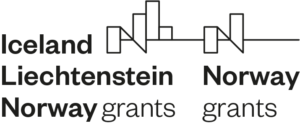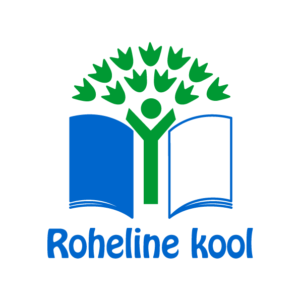Enhancing Climate Awareness and Sustainability Education through Eco-Schools Network Collaboration
Project Name: Enhancing Climate Awareness and Sustainability Education through Eco-Schools Network Collaboration
Funding Source: Support from the Bilateral Relations Fund of the European Economic Area and Norwegian Financial Mechanisms

Project ID: project No. 11.1-12/24/433-1
Project Period: October 1, 2024 – April 30, 2025
Budget: €146,478
Lead Partner: Tartu Environmental Education Centre (Estonia, Foundation)
Project Coordinator: Gedy Matisen (gedy.matisen@tartuloodusmaja.ee, +372 56 466 887)
Collaborating Partner: Stiftelsen FEE Norway (Norway, NGO, https://fee.no/)
Project Manager: Lene Jeanette Øverby Haakonsen (ljh@fee.no, +47 907 533 55)
Project Summary:
The project aims to strengthen the partnership, collaboration, and capacity of educational institutions participating in the Green School program in Estonia and Norway, along with their national coordinators, to address climate change through educational campaigns, cooperation, and the sharing of sustainable practices. The project also seeks to foster a sense of meaning and belonging among students and educators.
Objectives of the project:
- Enhance climate literacy among teachers and students in Estonia and Norway by integrating sustainability and climate change education into school management, curricula, and extracurricular activities.
- Promote sustainable practices in educational institutions through the Eco-Schools network, focusing on climate mitigation, digital waste reduction, and biodiversity conservation.
- Strengthen cross-border collaboration between Estonian and Norwegian Eco-Schools programs, promoting the exchange of sustainable practices, ideas, and educational materials.
- Increase community engagement by involving children, youth, and local communities in environmental education initiatives, particularly through campaigns focused on digital cleanup and pollinator enhancement.
Wished outcomes:
- Improved climate education with teachers and students in participating schools demonstrating increased knowledge and awareness of climate change, sustainability, and biodiversity.
- Adoption of sustainable practices in schools and kindergartens in both countries, integrating activities like digital cleanup and pollinator-friendly practices into daily routines.
- Successful implementation of the Digital Cleanup Campaign in Norway for the first time, with further refinement in Estonia, raising awareness about digital waste and promoting responsible digital habits.
- Enhanced teacher training on integrating sustainability into curricula and teaching practices in both Estonia and Norway.
- Stronger cross-border networks through the establishment of long-term partnerships and collaborative efforts between Estonian and Norwegian educational institutions, fostering ongoing collaboration on environmental education.
Concrete outputs:
- Project management structure with a well-coordinated team in both Estonia and Norway, including clear roles, timelines, and communication channels.
- Kick-off meeting and workshop in Oslo, including a training session on the Digital Cleanup Campaign, attended by key stakeholders from both countries.
- Educational materials developed and distributed, including videos, guides, and promotional content for the Digital Cleanup and Pollinator Enhancement campaigns.
- Digital Cleanup Campaign implemented in Norway and Estonia, involving student and teacher participation in reducing digital waste.
- Pollinator Enhancement Campaign created for Estonian schools, including study kits, teacher resources, and starting packages for participating institutions.
- Study trip to Trondheim for Estonian educators to observe best practices in integrating sustainability into school life.
- Communication and dissemination activities organised, including national conferences, community days for families, and international presentations to share project results and best practices.
- Indirect support provided through the allocation of resources for essential overhead costs to ensure smooth project execution and sustainability.

